California attorney advertising law, as outlined in Senate Bill 37 (SB 37), dictates how legal services should be promoted to ensure truthfulness and transparency. Key regulations include prohibitions on misleading claims, mandatory disclosures, and specific guidelines for soliciting clients. This article will explore these rules in detail and highlight best practices for compliance.
Key Takeaways
- California’s SB37 mandates strict compliance for attorney advertising, requiring accuracy and transparency across all promotional activities.
- The California Rules of Professional Conduct outline significant regulations, including prohibitions against misleading information and guidelines for the use of testimonials.
- Law firms must adopt best practices for compliance, including auditing existing advertisements and utilizing certified lead generation services to avoid legal repercussions.
Overview of California Attorney Advertising Law
California’s attorney advertising law, primarily governed by SB37, provides straightforward guidelines for advertising legal services. This legislation applies to all lawyers, licensees, and individuals advertising legal services in California, mandating compliance with specific amendments to the California Business and Professions Code, including Section 6158.7. Essentially, if you’re promoting legal services in California, SB37 will impact your approach.
The updated definition of ‘advertise’ under SB37 encompasses any communication that seeks to promote a lawyer’s services. This broad definition means that virtually all forms of promotional activities fall under the purview of this law. Whether it’s a billboard, a website banner, or a social media post, if it aims to attract clients, it must adhere to these regulations.
The term ‘licensee’ in California SB37 refers to individuals licensed by the State Bar, highlighting the scope of accountability in advertising practices. This means that all licensed attorneys in California must be vigilant in ensuring their advertising practices comply with SB37. Understanding these foundational elements is crucial as we delve deeper into the specific regulations and reforms brought about by this legislation.
Key Regulations Under Chapter 7 of the California Rules of Professional Conduct
Chapter 7 of the California Rules of Professional Conduct establishes comprehensive guidelines for marketing, communication about legal services, advertising regulations, and the use of firm names. These rules, which became effective on November 1, 2018, and replaced the previous set governing California lawyers’ conduct from 1992 to 2018, include crucial sections on lawyer websites and advertisements.
Rules 7.1 through 7.3 outline specific requirements and restrictions that shape ethical attorney advertising in California.
Rule 7.1: Communication About Legal Services
Rule 7.1 of the California Rules of Professional Conduct explicitly prohibits false or misleading communications about the lawyer or the lawyer’s services, specifically regarding a lawyer’s skills or experience. Key points include:
- Any false, misleading, or deceptive statements are strictly prohibited under the law.
- Clients must receive accurate information when selecting legal representation.
- Lawyers must be diligent in verifying the accuracy of their claims, including qualifications and past case outcomes.
Attorneys must avoid making false or misleading information about their services or fees. Legal advertising representations should accurately reflect the factual and legal circumstances of the services provided. For example, claims regarding guaranteed results are prohibited, and claims regarding exceptional outcomes are considered misleading if not supported by evidence or if they create unjustified expectations. Omitting important facts that could influence a client’s decision can also lead to misleading advertising.
Misleading communications can result in disciplinary actions from the State Bar of California, including but not limited to reprimand, suspension, or disbarment, based on violations of rules prohibiting false or misleading communicatiosn. Therefore, it is imperative for lawyers to ensure their advertisements are truthful and transparent, providing prospective clients with a clear and honest depiction of the deceptive legal advertising related to the legal services offered.
Rule 7.2: Advertising Guidelines
Under Rule 7.2, attorneys are permitted to advertise their legal services provided, contingent upon specific regulations that govern such advertising. One of the key requirements is that advertisements must include the name of at least one lawyer or law firm responsible for the content and a bona fide office address or telephone number, ensuring accountability for the content presented. This transparency helps potential clients verify the legitimacy of the advertising lawyer or law firm.
When utilizing client testimonials in advertisements, lawyers must adhere to specific legal rules to prevent misleading potential clients. Testimonials must be truthful and not create unjustified expectations about results that can be achieved. Additionally, if testimonials describe past results, they must include a disclaimer that past results do not guarantee or predict a similar outcome, as misleading details such as fictitious claims can violate advertising guidelines.
Advertisements must include relevant information while avoiding misleading details. Ensuring that all claims are substantiated and factual is critical to maintaining ethical standards in legal advertising. Following these guidelines allows attorneys to promote their services effectively while maintaining the profession’s integrity.
Rule 7.3: Solicitation Restrictions
Rule 7.3 prohibits lawyers from soliciting professional employment through direct real-time electronic contact or in-person contact when a significant motive for doing so is pecuniary gain, unless the person contacted is a lawyer, has a family or close personal relationship with the lawyer, has a prior professional relationship with the lawyer, or routinely uses the type of legal services involved for business purposes. This restriction is in place to prevent undue influence or pressure on potential clients.
Written solicitations must include the word “Advertisement” on the outside envelope if any, and at the beginning and ending of any recorded or electronic communication, unless the recipient is a person specified in Rule 7.3(a)(1), (2), or (3). This transparency ensures that recipients are aware they are being solicited for legal services, which helps maintain ethical standards in advertising.
Adhering to these solicitation restrictions enables attorneys to engage in ethical marketing practices while respecting the boundaries set by the California Rules of Professional Conduct. Understanding and following these rules is essential for maintaining the trust and integrity of the legal profession and to solicit professional employment.
Understanding SB37: Major Reforms to Attorney Advertising
California SB37 introduces significant reforms to attorney advertising, enhancing consumer protection and ensuring transparency in legal promotions. One of the notable changes is the updated definition of ‘advertisement,’ which now includes any communication that seeks to promote a lawyer’s services. This broader definition means that virtually all forms of promotional activities fall under the purview of SB37.
These reforms are designed to address the shortcomings of previous regulations, ensuring that consumers receive accurate and honest information. Understanding these changes allows law firms to adapt their advertising strategies to comply with existing law and maintain ethical standards in their promotional efforts.
Lead Generation Requirements
Under SB37, lawyer referral services and lead generation services that constitute lawyer advertising must be certified by the State Bar of California and adhere to specific operational standards set forth in Business and Professions Code Section 6155 et seq. This certification ensures that lead generation practices meet the ethical and legal standards set by SB37. Additionally, joint advertising by attorneys requires a specific agreement that holds each participant liable for the content, including those involved in a certified lawyer referral service.
These requirements are in place to prevent deceptive practices and ensure that prospective clients receive accurate information. Adhering to these standards enables law firms to engage in ethical lead generation and joint advertising, providing a trustworthy experience for a prospective client at a bona fide office location.
Civil Enforcement Actions
SB37 creates a private right of action under Business and Professions Code Section 6158.3, allowing individuals who suffer damages as a result of a violation of specified advertising provisions to file civil actions against lawyers who fail to comply with advertising regulations. The prevailing party may be entitled to recover actual damages, restitution, reasonable attorney’s fees, and costs. These civil actions aim to hold attorneys accountable for misleading advertisements and provide consumers an avenue for redress. Consumers can initiate direct civil enforcement action pursuant to damages caused by non-compliant attorney advertisements under SB37.
This provision empowers consumers to seek justice and ensures that attorneys adhere to ethical advertising practices, considering the relevant circumstances presented. Understanding the potential legal matter allows law firms to take proactive steps to ensure their advertisements are compliant and truthful, including participation in lawyer advertising collectives, as existing law states, and as the court deems proper.
Holding attorneys accountable for their advertising practices is a crucial aspect of SB37. By complying with these regulations, existing law imposes law firms to maintain their reputation and build trust with clients, ensuring a fair and transparent legal marketplace.
Compliance with SB37: Steps for Law Firms
Compliance with SB37 is crucial for law firms to avoid legal repercussions and maintain ethical advertising practices. One effective way to manage compliance is by partnering with a marketing agency experienced in legal advertising. However, attorneys remain ultimately responsible for ensuring all advertising complies with applicable rules, regardless of who creates or distributes the advertising materials. Outsourcing to an expert can help law firms navigate the complexities of SB37 and ensure their marketing strategies are aligned with the new requirements.
Adhering to SB37 regulations is essential for maintaining professionalism and client trust in legal advertising. Taking proactive steps towards compliance helps law firms uphold their ethical standards and avoid potential legal issues related to professional employment.
Updating Advertising Agreements
Updating joint legal advertising arrangements is essential to ensure compliance with the new lawyer referral services requirements set forth in recent reforms. A lawyer referral service must be certified by the State Bar of California pursuant to Business and Professions Code Section 6155 and conform to the minimum standards established in Section 6155-6159.2 to operate legally. Certification must be renewed annually. Compliance with these standards is necessary for permissible joint advertising requires agreements to be valid and effective. Additionally, referral services play a crucial role in connecting clients with qualified legal professionals through joint advertising services and a joint advertising agreement.
Failure to update advertising agreements may lead to noncompliance, resulting in potential disciplinary action by the State Bar, civil liability under SB37’s private right of action, and damage to a firm’s reputation. Ensuring their agreements are up-to-date helps law firms avoid these risks and maintain ethical advertising practices.
Auditing Existing Advertisements
It is crucial for lawyers to evaluate their current marketing materials against SB37 regulations to ensure compliance. Current advertising materials should be assessed for compliance with the revised standards under SB37, as existing law prescribes that all mandated disclosures are included and that the content is truthful and accurate.
Auditing existing advertisements helps law firms identify potential issues and make necessary adjustments to align with SB37. This proactive approach helps maintain ethical standards and avoid legal repercussions.
The Role of the State Bar in Advertising Compliance
The State Bar of California’s primary responsibilities and related legal amendments include:
- Overseeing adherence to advertising laws by attorneys.
- Imposing sanctions on attorneys who violate advertising regulations to ensure ethical standards are maintained.
SB37 amends the California Business and Professions Code, specifically adding Section 6158.3 and amending Sections 6157.2, 6157.3, and 6158.1, to enhance penalties and create new enforcement mechanisms for violations related to lawyer advertising. If a person believes there is a violation of specific advertising sections, they can file a complaint with the State Bar. The right of action for SB37 violations exists independently of enforcement actions by governmental agencies. If the State Bar finds substantial evidence that a violation exists, the advertisement must be withdrawn.
Under California law, lawyers must retain copies of all advertisements for one year after their last dissemination, along with records of when and where the advertisements were used. Understanding the role of the State Bar helps attorneys ensure their advertising practices comply with SB37 and avoid potential sanctions.
Online Advertising and Lawyer Websites
California attorney advertising rules, including the Rules of Professional Conduct and SB37 requirements, apply to all communications about a lawyer’s services, including but not limited to websites, social media, paid advertisements, email communications, and other digital or printed materials. The restrictions have critical implications for online advertising and third-party websites, which attorneys must navigate carefully.
Reviewing a law firm website for compliance involves:
- Reviewing materials discussing past case successes to avoid misleading representations.
- Verifying that all information on the website is truthful and accurate.
- Using disclaimers to clarify the intention of marketing statements.
By ensuring their online presence adheres to these guidelines, law firms can maintain ethical advertising practices and build trust with potential clients in an electronic medium. This proactive approach helps avoid legal repercussions and enhances the firm’s reputation.
Building Trust Through Transparent Advertising
Effective communication is essential for establishing and maintaining client trust, as it influences their overall experience with the law firm. The quality of communication affects not just client acquisition but also retention and their confidence during legal proceedings. The first interactions with prospects, including intake forms and follow-ups, set the tone for trust-building.
Legal professionals should strive to balance promoting their services with providing genuine value. Transparency in advertising helps build a strong foundation of trust, which is crucial for long-term client relationships. By focusing on clear and honest communication, law firms can enhance their reputation and attract more clients.
Building trust through transparent advertising is not just about compliance; it’s about fostering a positive relationship with clients. Adhering to ethical standards and providing valuable information allows law firms to create a trustworthy and reliable image in the legal community.
Partnering with Walker Advertising
Partnering with Walker Advertising for legal lead generation offers attorneys and law firms a trusted pathway to grow their client base while ensuring full compliance with California attorney advertising law, including the latest SB37 regulations.
With over 40 years of experience in legal marketing and an in-house compliance team dedicated to monitoring evolving regulations, our team delivers high-quality, pre-screened leads through marketing strategies that meet all ethical and legal standards. Our expertise helps law firms focus on providing excellent legal services while we handle the complexities of compliant marketing, giving attorneys peace of mind and a competitive edge in attracting prospective clients.
Frequently Asked Questions
What is SB37 and how does it impact attorney advertising in California?
SB37 enhances consumer protection in attorney advertising in California by introducing regulations that all lawyers must adhere to, ensuring transparency in legal promotions. This law aims to create a more trustworthy environment for consumers seeking legal services.
What are the key requirements under Rule 7.1 of the California Rules of Professional Conduct?
Rule 7.1 mandates that attorneys must not make misleading or deceptive statements in their advertisements and requires that all claims be truthful, accurately reflecting the factual and legal circumstances of their services. Adhering to these principles is essential for maintaining professionalism and credibility within the legal practice.
How can law firms ensure compliance with SB37?
To ensure compliance with SB37, law firms should update joint advertising agreements, audit existing advertisements, and collaborate with a marketing agency that specializes in legal advertising. This approach is essential for maintaining professionalism and avoiding potential legal issues.
What role does the State Bar play in enforcing advertising compliance?
The State Bar enforces advertising compliance by overseeing adherence to relevant laws, imposing sanctions for violations, and requiring the withdrawal of non-compliant advertisements. This ensures that ethical standards are upheld within the legal profession.
Why is transparency important in legal advertising?
Transparency in legal advertising is crucial as it establishes trust with clients by providing accurate and honest information, thereby fostering positive relationships and enhancing the firm’s reputation.






